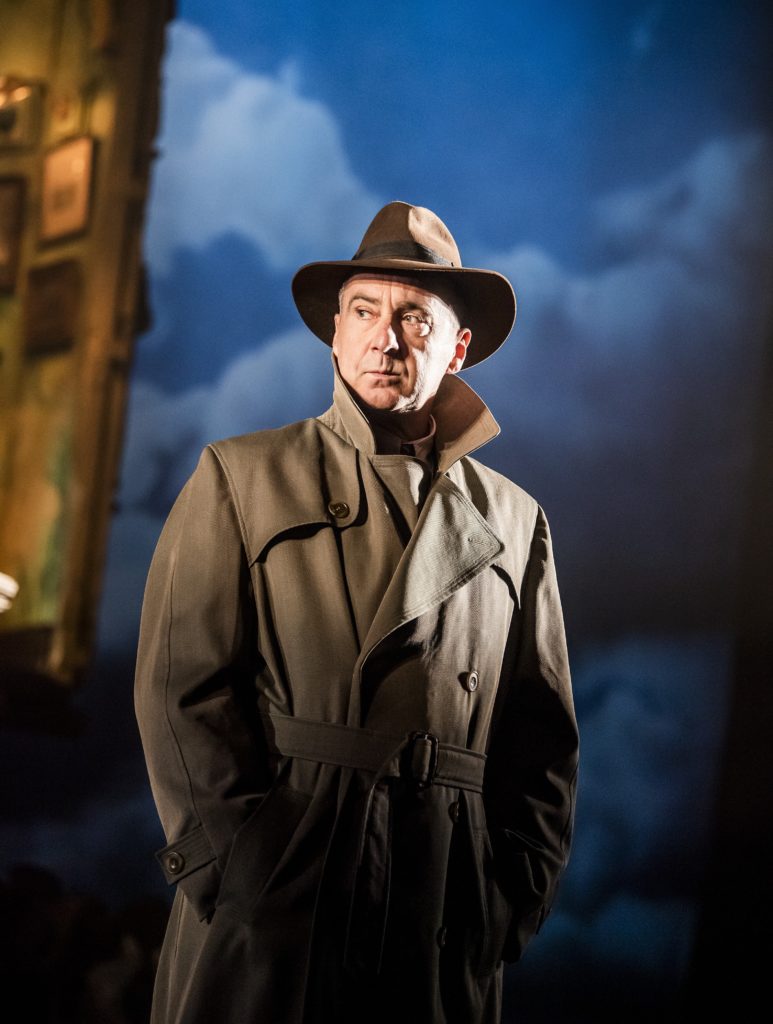
STEPHEN Daldry’s award-garlanded reimagining of J B Priestley’s haunting family drama An Inspector Calls will return to its York roots next year.
Premiered at York Theatre Royal in 1989, this time it will play the Grand Opera House for the first time from February 7 to 11 2023 on its 30th Anniversary UK and Ireland Tour: so called because the London premiere was staged in 1992 at the National Theatre.
PW Productions are mounting the 2022-23 tour that will see Liam Brennnan playing Inspector Goole, just as he did on the last visit to York when performing to sold-out audiences at the Theatre Royal in September 2018.
Writer-director Daldry’s ground-breaking production has accumulated 19 major awards, including four Tony Awards and three Olivier Awards, and played to more than five million theatregoers worldwide, en route to becoming the National Theatre’s most internationally lauded show.
Written at the end of the Second World War and set before the First, Bradford playwright Priestley’s thriller opens with the mysterious Inspector Goole calling unexpectedly on the prosperous Birling family home. Whereupon their peaceful family dinner party is shattered by his investigations into the suicide of a young, discarded, pregnant factory girl.
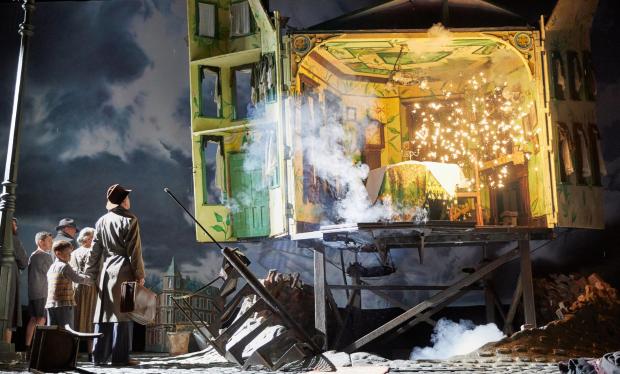
Inside, the year is 1912; outside it is 1945 as urchins play in the rain-swept, thundering wartime streets in the year when Priestley wrote his play. A pillar-box telephone and steam radio denote the latter era, as does the Bogart raincoat of Brennan’s sternly Scottish Inspector Goole.
Under Goole’s forensic, assiduous, tongue-loosening style of questioning, the impact mirrors a wartime bombing raid as the ground buckles beneath them.
Priestley’s socialist uprising of a play dramatises the dangers of casual capitalism’s cruelty, complacency and hypocrisy. Over its 105 unbroken minutes, Daldry’s German expressionist interpretation builds a political layer, one whose resonance renews with each era.
In 1989, his wish was to send Margaret Thatcher’s Tory philosophies to the grave, to damn the pursuit of individual gain; in 2009, when playing Leeds Grand Theatre, parliamentary expense claims and duck ponds were in the headlines.
In 2018, Inspector Goole’s final speech, with its wish for collective responsibility and someone, anyone, willing to say sorry, rubbed against an age of austerity, intolerance, division and worsening working conditions.
Roll on 2022-23, a 12th year of Tory rule, as inflation rises and strikers rise up in an over-hot world but one where people can’t afford to heat themselves through the winter while oil and gas shareholders can afford to burn fivers by the barrowload.
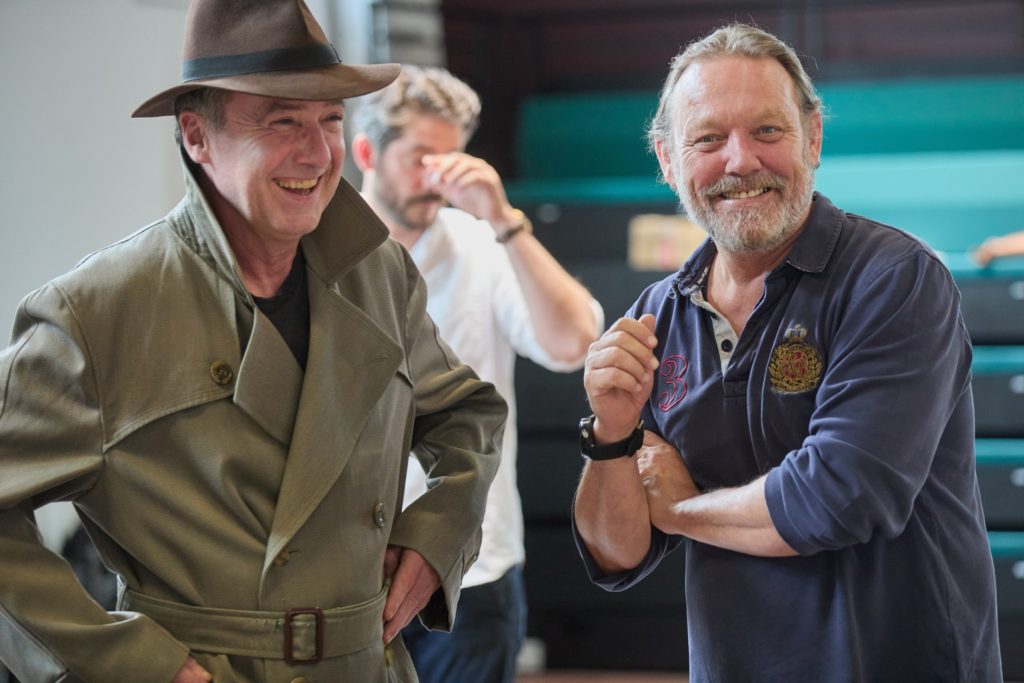
Dorset-born British theatre and film director Daldry will be at the directorial helm once more. Over the years, he has received Academy Award nominations for his films The Reader, The Hours, Billy Elliot and Extremely Loud And Incredibly Close, while his West End theatre work includes David Hare’s Skylight at the Wyndham’s Theatre and Peter Morgan’s The Audience at the Apollo Theatre.
His multi award-winning production of Billy Elliot The Musical ran for 11 years at the Victoria Palace, London, before embarking on a national tour. Latterly, he has directed several episodes of the Netflix hit series The Crown, taking on the producer’s role too.
Joining him in the production team will be Oscar-winning composer Stephen Warbeck (Shakespeare In Love), lighting designer Rick Fisher and designer Ian MacNeil, whose audacious original set is still extraordinary, still breath-taking: an over-sized doll’s house set on stilts to raise its smug, partying Edwardian occupants for moral examination by Priestley, the inspector and the audience alike.
Alongside Brennan’s Inspector Goole will be Christine Kavanagh as haughty, social-climbing Sybil Birling; Jeffrey Harmer as bumptious former Lord Mayor Arthur Birling; Evlyne Oyedokun as daughter Sheila Birling; Simon Cotton as her arch fiancé, Gerald Croft; George Rowlands as Sheila’s unhappy, inadequate, lush brother, Eric Birling, and Frances Campbell as parlour maid Edna, complemented by understudies Philip Stewart, Beth Tuckey, Maceo Cortezz and Rue Blenkinsop.
Tickets for An Inspector Calls at Grand Opera House, York, cost £13 upwards on 0844 871 7615 or atgtickets.com/York.
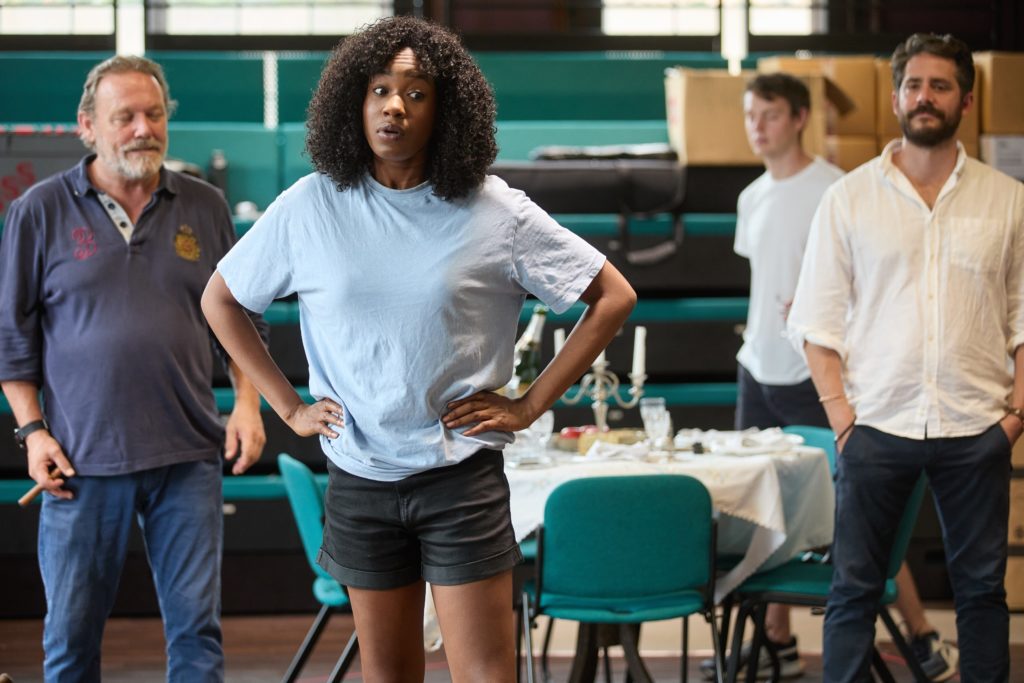
Here, George Rowlands (who will play Eric Birling) and Evlyne Oyedokun (Sheila Birling) escape Inspector Goole’s forensic scrutiny to answer questions of a different kind ahead of the 2023 tour of An Inspector Calls.
An Inspector Calls is on the school curriculum, sure to attract GCSE pupils and their parents alike to next year’s tour. Did you study it at school? If so, did you enjoy it? Does your appreciation of the play differ as an adult?
George: “I did read it at school, although I can’t really remember much of it. But I did always like it. I always think at school, when you sit down and analyse every single word, it can make you go a bit crazy, and I always thought it ruined books and plays. But now that I’m an adult, or more importantly now that I’m an actor, I definitely have more of an appreciation for it.”
Evlyne: “I actually didn’t study it at school; I studied To Kill A Mockingbird. I’d heard about An Inspector Calls but I didn’t really know what it was, or really anything about it. It wasn’t until I got this audition that I actually read the play for the first time, and I still didn’t quite understand it. It took me a while to realise how many layers this play actually has.”
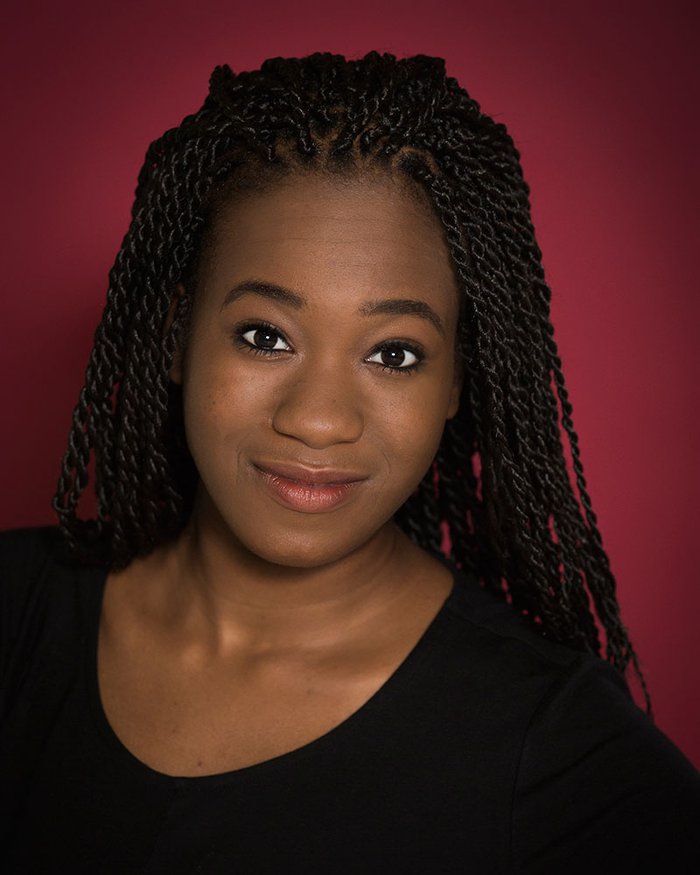
What makes J B Priestley’s play so timeless and Stephen Daldry’s production so engaging?
Evlyne: “Well, the fact that is has three timelines helps. It’s set across three timelines – you’ve got 1912, which is where the play is set; then you’ve got the future, which is the Blitz, 1945, and then you’ve also got the current now, 2022.
“It’s amazing. You’re flicking through the past, present and the now constantly, and it’s so reflective on humanity, so it makes it so relevant, and people can really see themselves.”
George: At the end of the day, at its centre it’s a play about somebody in distress, and that doesn’t get old, does it? I think at different points in time, when we’ve put it on over the last 30 years, it’s been relevant. And this time around I think it’s more relevant than ever because of what’s going on in terms of the strike action and housing crisis.”
Give three characteristics of the character you will be playing?
George: “Eric is well educated because he’s been sent to public school. He enjoys a drink, probably a little bit too much. He really wants to be respected by his dad. Unfortunately, the combination results in some pretty catastrophic things.”
Evlyne: “Well, Sheila’s absolutely besotted with Gerald. She is very self-absorbed and in her own world, as she’s been brought up that way. She absolutely adores clothes.”
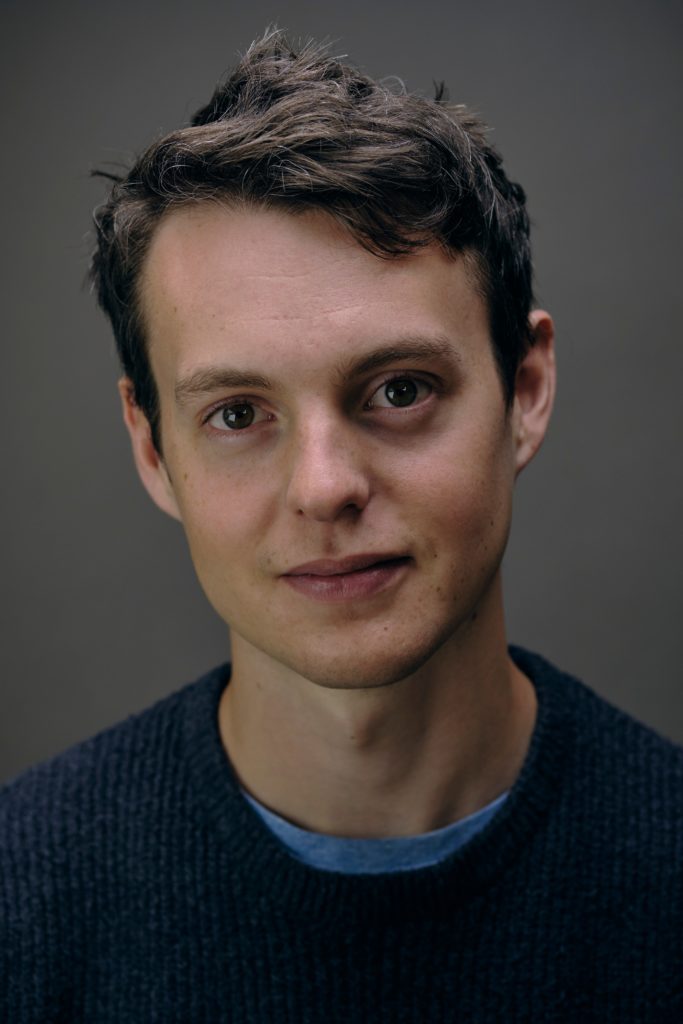
What made you want to be an actor?
Evlyne: “Oh gosh! With me, I actually didn’t ever want to be an actor, it happened by accident. From a young age I was struggling with people and I never really spoke – I was pretty much mute to people I didn’t really know.
“My mum advised me to go and see a youth company at the weekends, so I did that, and I didn’t realise how natural it was to act as it is to live in the real world. I was a lot freer.
“That’s how I realised it’s the only thing I can do. Drama school taught me how to speak and acting taught me how to be more of a human than I ever was.”
George: “I think it beats doing any other boring job. I did find out quite early on in Year 6: for the end-of-school plays we did The Wizard Of Oz and I completely rewrote the script because I thought it was rubbish, and obviously made my parts the best.
“I like storytelling and I like the creative and artistic aspect of it. With this production, it has enabled that part of acting, and it’s been a really good creative process.”
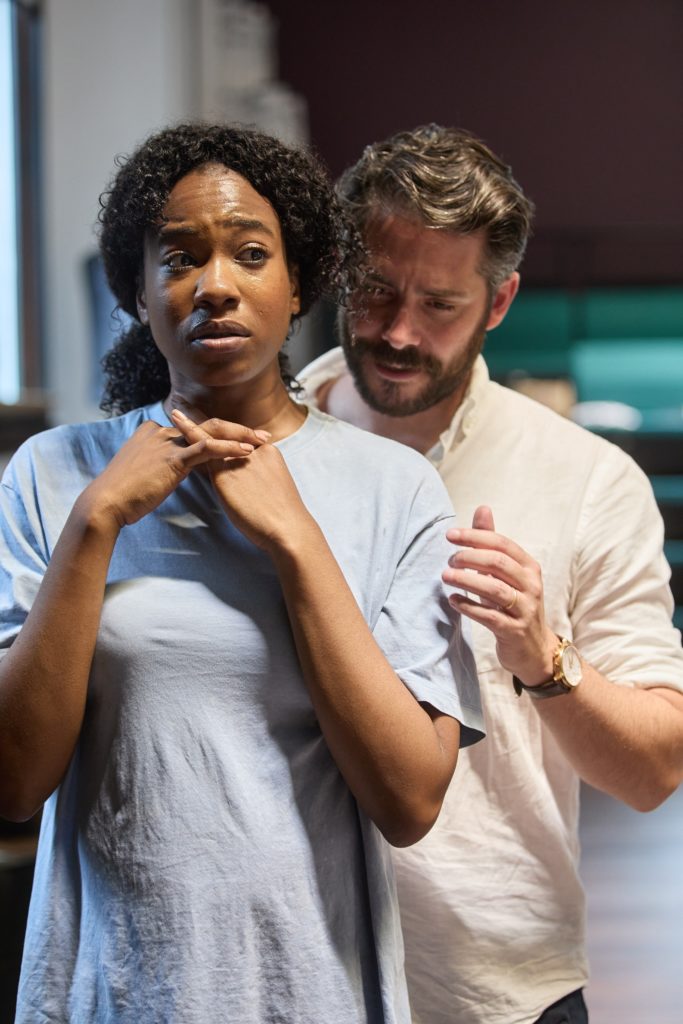
When on tour, are there any essentials to have in your dressing room or top tips for making yourself feel at home in each city?
Evlyne: “I’m really bad at this stuff! A lot of people tend to make their dressing rooms cosy with nice blankets and things. I just bring everything that I have in my bag and that’s pretty much it.
“Some people put up fairy lights and flowers, but for me I’m very simple. With autism, as long as I’ve got really comfy clothes, a phone charger and headphones to cancel out sound, I’m all good.”
George: “I’m sharing a room with Simon [Cotton] who’s playing Gerald. I don’t know…I think a bottle of water goes a long way. A bottle of water and some Vaseline is not a terrible idea – for the lips, obviously! I get chapped lips.”
What is the most challenging part of being a performer?
Evlyne: “For me, it’s not being able to see your work or the story you’re creating because you’re so involved and living in the moment of it. You don’t really see the end result. I feel that the end result is mainly the response from the audience; if they got the story then we’ve done our job.”
George: “With other jobs, you can put a direct amount of work in, you can work more, you can do this and this, and your results will be better because of it. Like if you’re studying for an exam, the more you revise, the better the result.
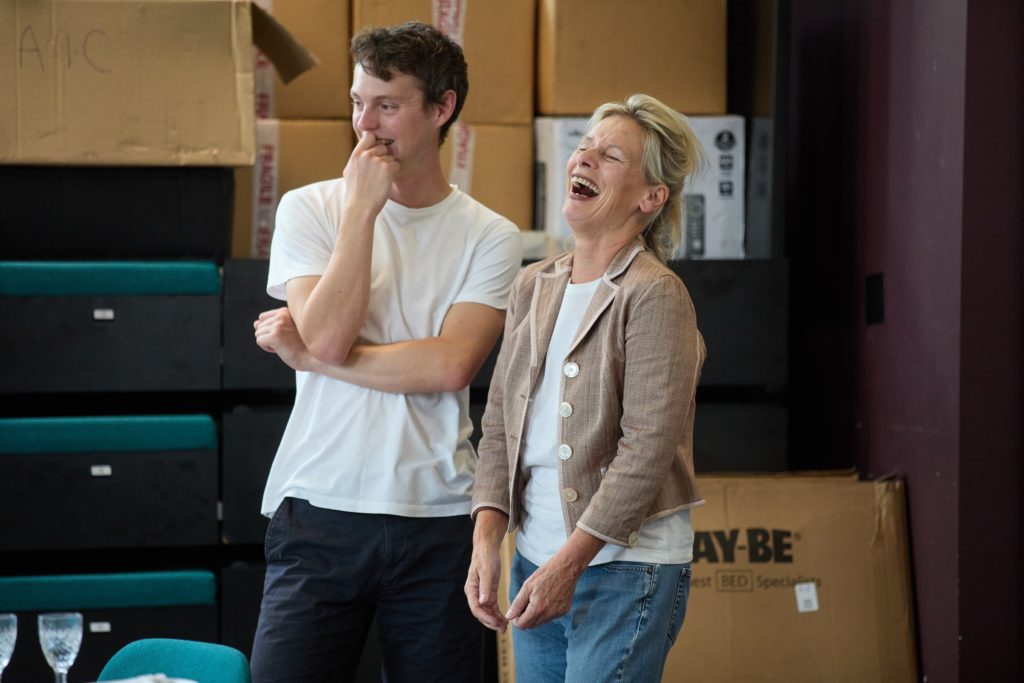
“But with acting it doesn’t work like that because being good is so subjective – there’s no grade. I think that’s quite hard. Putting lots of work in and not knowing really how it will go.”
Evlyne: “One of the sayings at RADA was, ‘plan it, know it and forget it’. It’s the hardest thing to do, but it’s the most rewarding thing to do.”
If you could swap roles for a performance, would you?
Evlyne: “If I had to be someone out of all the characters, it would definitely be the inspector, because I’m obsessed with crime documentaries and serial killers, everything to do with murder, unsolved murder, unsolved mysteries, death row, all of that! I’ve pretty much seen everything and I re-watch it to go to sleep.”
George: “If I could pick any character, I’d probably pick Edna [the parlour maid]. I would love to play her. If you haven’t seen this production, there’s a special thing that Edna is part of – a little bit of magic. She’s amazing.
“My second choice would be Mrs Birling. I really like Mrs Birling; she’s got such sass and doesn’t have the insecurities that Eric is stuck with.”
